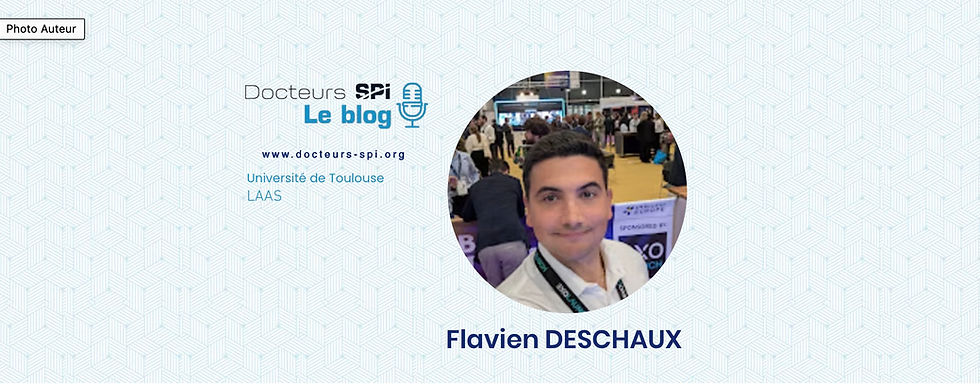Advices and Perspective on PhD from a doctor who transitioned to Industry
- Maksim BEREZOV

- 25 mars 2024
- 3 min de lecture
Dernière mise à jour : 29 sept. 2024

Merci d'avoir accepté l'interview.
Why Did you decide to do a Ph.D.?
I pursued a PhD because I was fascinated by the academic world and the process of scientific discovery. I wanted to dive deep into my research topic, which was about using machine learning to optimize compiler transformations. It was a challenging area, but I was excited about the potential impact it could have. I also looked forward to engaging with the research community, sharing my ideas at conferences, and learning from others. Overall, it was a journey of personal and professional growth, and I'm grateful for the experience.
Can you please briefly describe your PhD topic?
My research topic is about how machine learning can help optimize certain compiler transformations. In simple terms, we aim to generate faster code with the help of ML.
Can you please describe your PhD thesis experience?
In the first year of my PhD, I focused on reading extensively and getting a solid understanding of my research area. The second year was all about experimenting and testing various ideas and hypotheses. I was lucky to have a collaborative lab environment with many researchers and interns eager to help. By the third year, I moved on to conducting more experiments and began writing my thesis, organizing my findings into a coherent manuscript. Finally, I shifted my focus to preparing for my defense.
Throughout this journey, my scientific advisor was incredibly supportive, playing a crucial role in my success and helping me navigate the challenges of my research.
What did you do after your thesis?
After completing my PhD, I spent some time contemplating whether to stay in academia or transition to the industry. Eventually, I decided to explore opportunities in the industry and started working as a Data Scientist/ML Engineer. During my PhD, I realized that data analysis and working on machine learning models were the most engaging aspects of my research. Currently, I'm focusing on matching duplicate real estate listings on a major platform. Before that, I worked on optimizing courier routes for an e-commerce service.
What is the main difference between academia and industry?
In academia, there's a drive to explore the unknown and innovate, often diving into complex theories or cutting-edge ideas without worrying about immediate practical use. It's a space where curiosity leads, and creating something entirely new or significantly deepening our understanding of a subject is the main ambition.
On the other hand, in the business world, the goal is to get things done efficiently and make a difference very quickly. Businesses focus on finding and using strategies that work well and can be implemented fast to make the company run better and bring more value. This approach is very practical and focused on solving current problems with solutions that are both useful and profitable.
Overall, I believe that both academia and industry have their advantages, and I decided that to become a better specialist and understand problems from all angles, I want to explore both paths.
Could you give some advice to new PhD Students?
• Choose your research topic wisely: Your research topic must be not only relevant but also personally inspiring. It should be something that genuinely interests you and motivates you to continue working, even when faced with challenges.
• Look for opportunities for collaboration: Work in collaboration. Find colleagues with whom you can exchange ideas, conduct joint research, and support each other. Collaboration can significantly enrich your experience and help achieve better results.
• Participate in conferences: Be bold and present your work at scientific conferences. This is a great opportunity to receive feedback from peers, establish contacts in the scientific community, and learn about new trends and research in your field.
• Remember personal life: Even though a PhD requires a lot of time and effort, it's important to find time for relaxation, hobbies, and socializing with family and friends. A balance between work and personal life will help you stay motivated and effective in the long term.




Commentaires